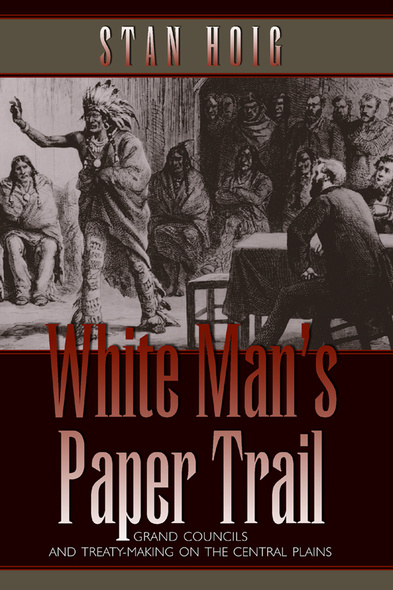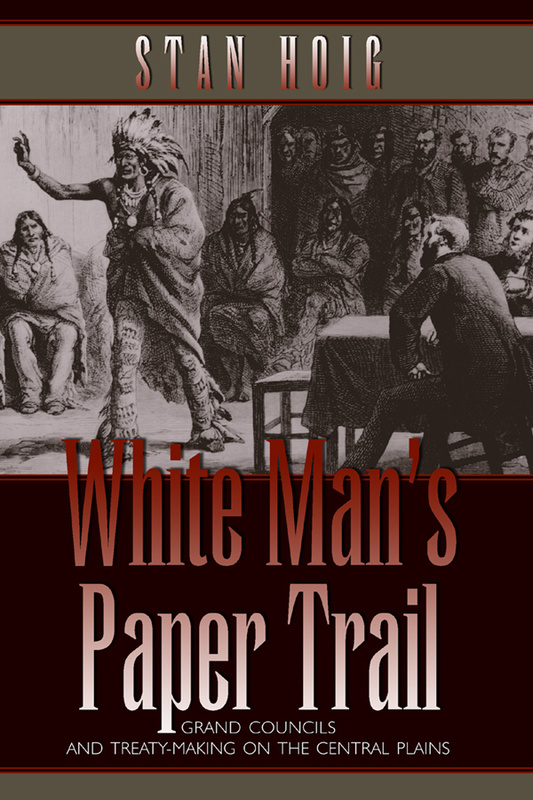White Man's Paper Trail
Grand Councils and Treaty-Making on the Central Plains
By Stan Hoig
University Press of Colorado
White Man's Paper Trail presents a poignant history of the U.S. government's attempts to peacefully negotiate treaties with tribes in Arkansas, the Dakotas, Kansas, Oklahoma, Texas, Colorado, and Wyoming.
Stan Hoig shows how treaty-making - once considered a viable method of peaceably resolving conflicts - degenerated into a deeply flawed system sullied by political deceptions and broken promises.
Stan Hoig shows how treaty-making - once considered a viable method of peaceably resolving conflicts - degenerated into a deeply flawed system sullied by political deceptions and broken promises.
White Man's Paper Trail illuminates the pivotal role of treaty negotiations in the buildup to the Plains Indian wars, in American Indians' loss of land and self-determination, and in Euro-American westward expansion.
Stan Hoig's extensive research spans about 40 years and is revealed in more than a dozen books on Indian history. This new effort is among his best. Hoig expertly takes the reader through the procedures of Indian treaties, peace negotiations, or lack of, and points out 'political deception and dishonesty' by various government officials. Hoig's well-founded premise is that treaties were designed specifically for the 'displacement and removal of the Indian people.' The reader will learn of such atrocities during a 75-year period, spanning from the Missisippi River westward. Any serious researcher will gain invaluable insight from Hoig's excellent treatment of the subject.'
- True West
For the reader interested in the history of how the United States treated American Indians from 1800-71, Hoig presents a clear picture of many of the events that led to the writing of treaties. . . . [An] essential research tool for students, historians, and history buffs. It should be required reading for Americans who have an interest in American and Indian relations.'
- Oklahoman
With his new publication, Stan Hoig proves once again that he is a master of his subject matter. Readers will feel confident that they are in the competent hands of a reliable scholar who avoids pedantry and polemics and who writes with a clear, eminently readable style.'
- Colorado Central Magazine
Stan Hoig was professor emeritus at the University of Central Oklahoma, an award-winning journalist and author of more than twenty books.






